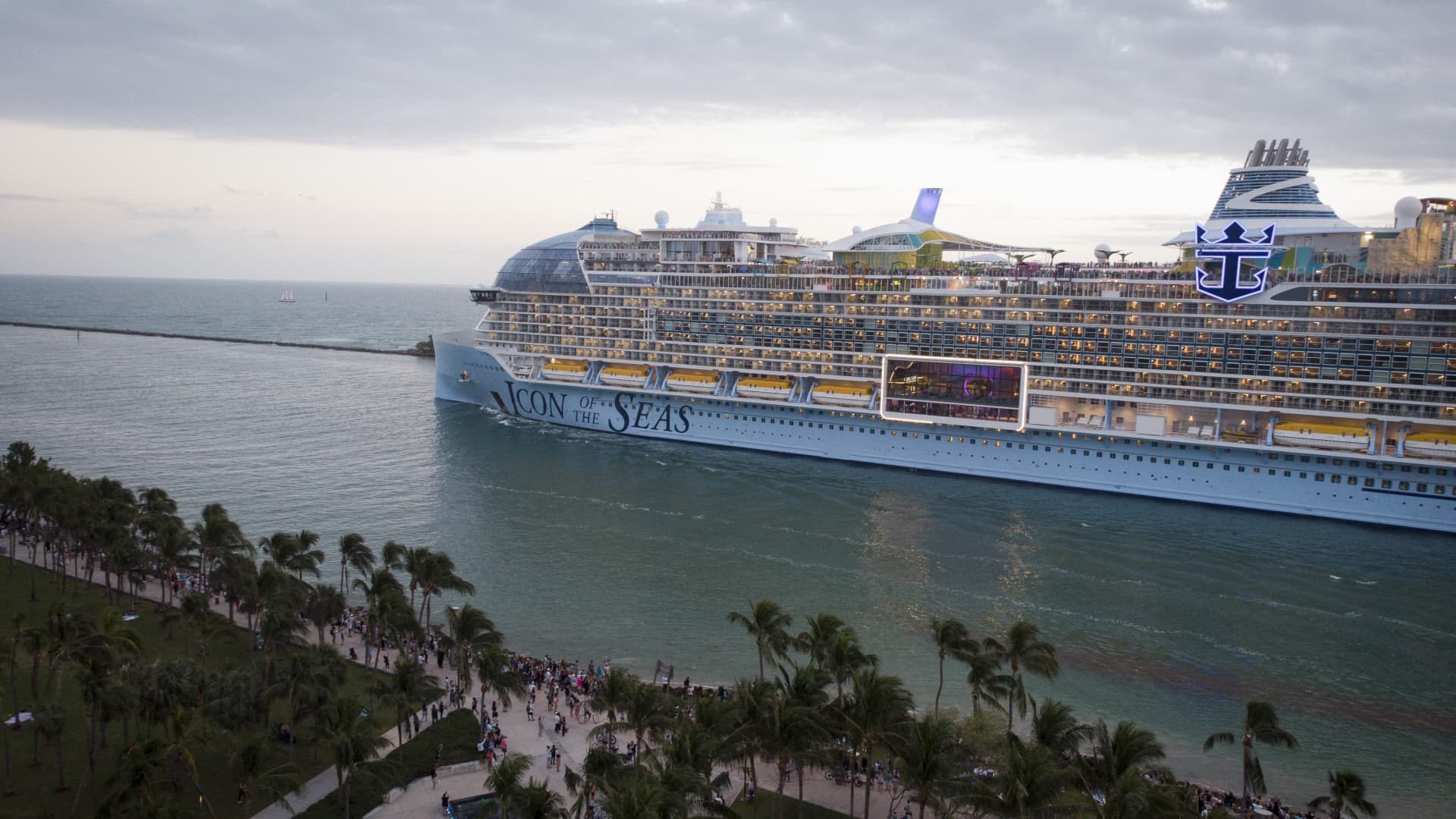The world’s largest cruise ship set sail from Miami, Florida over the weekend, embarking on a seven-day island-hopping trip through the tropics for its maiden commercial voyage.
Onlookers gathered Saturday as Royal Caribbean International’s behemoth — named the Icon of the Seas — left the Port of Miami to great fanfare.
Complete with eight “neighborhoods,” seven swimming pools, six waterslides and a total of 20 decks, the ship embarked on its inaugural cruise seeking to capitalize on surging travel demand.
Remarkably, the ship is roughly five times the size of Titanic and has a maximum passenger capacity of 7,600.
It cost $2 billion to build, measures nearly 1,200 feet (365 meters) from bow to stern, and weighs 250,800 metric tons.
At a briefing earlier in the month, Royal Caribbean Group CEO Jason Liberty described the Icon of the Seas as the “biggest, baddest ship on the planet.”
The launch of the giant floating resort has sparked renewed concerns about the environmental impact of cruise tourism.
The ship is built to run on liquified natural gas, which burns more cleanly than other conventional marine fuels but contains high levels of methane.
Methane is about 80 times more potent than carbon dioxide when it comes to warming the atmosphere, and scientists have warned that methane emissions must be dramatically reduced to avoid the worst of what the climate crisis has in store.
“It’s a step in the wrong direction,” Bryan Comer, director of the Marine Program at the International Council on Clean Transportation (ICCT), was quoted by Reuters as saying.
“We would estimate that using LNG as a marine fuel emits over 120% more life-cycle greenhouse gas emissions than marine gas oil,” he added.
The ICCT released a report last week warning that methane emissions from LNG-fueled ships were higher than current regulations assumed, noting the use of LNG as a marine fuel is “rapidly growing.”
Royal Caribbean International says that every kilowatt of energy used for the Icon of the Seas “is scrutinized for energy efficiencies and emission reductions.”
